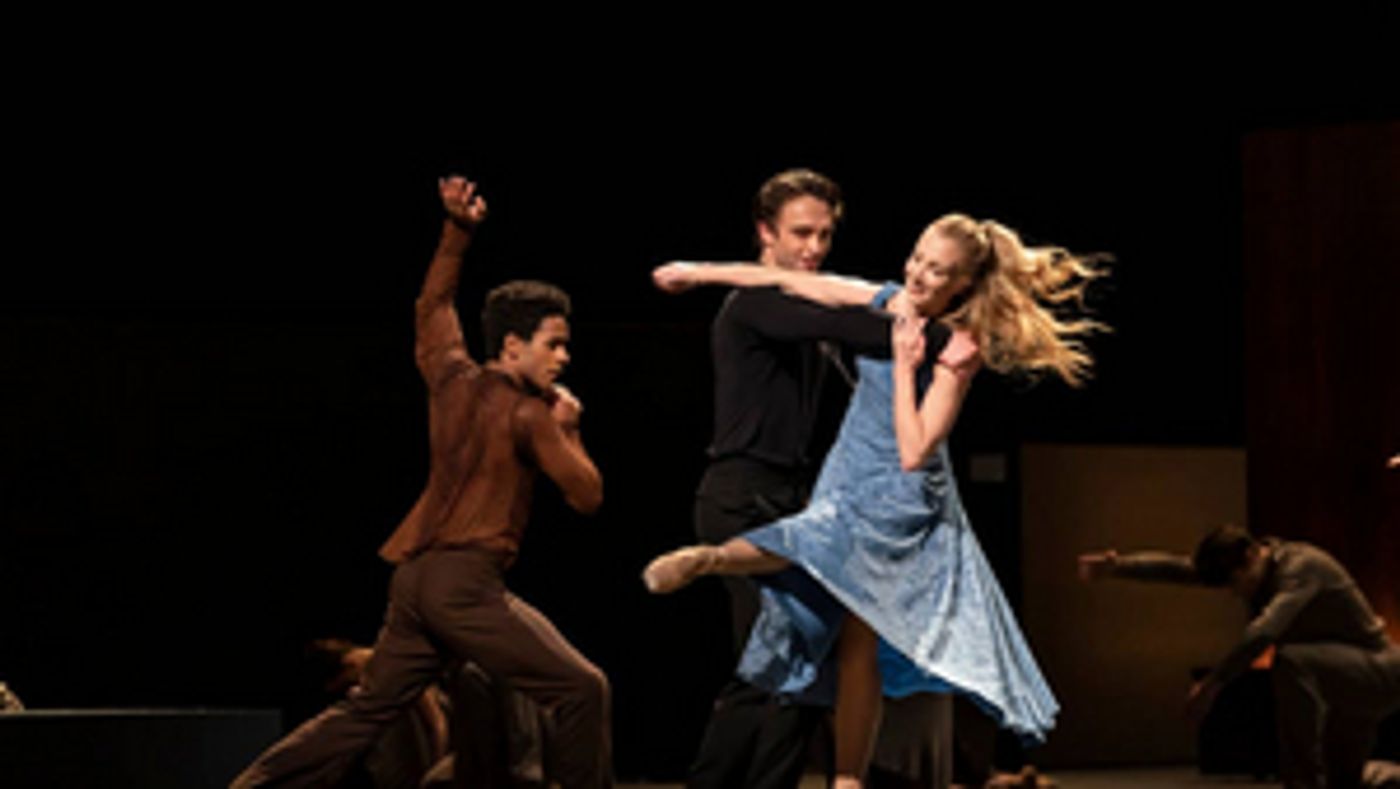Review: THE CELLIST / DANCES AT A GATHERING, Royal Opera House

![]() The first mixed programme of 2020 from the Royal Ballet sees Cathy Marston's much anticipated and arguably long overdue first work for the main stage at Covent Garden. Renowned for her lucid and atmospheric storytelling, most recently in The Suit (Ballet Black) and Victoria (Northern Ballet), she now turns her attention to an unconventional but heartfelt love story.
The first mixed programme of 2020 from the Royal Ballet sees Cathy Marston's much anticipated and arguably long overdue first work for the main stage at Covent Garden. Renowned for her lucid and atmospheric storytelling, most recently in The Suit (Ballet Black) and Victoria (Northern Ballet), she now turns her attention to an unconventional but heartfelt love story.
The Cellist chronicles the life of Jacqueline du Pré, from her obvious early musical talent and early success to her sweeping romance and marriage to conductor Daniel Barenboim, before her battle with multiple sclerosis. It's rich pickings for an emotional and immersive story enhanced by Marston's signature use of an ensemble.
The personification of the cello is a concept hard to imagine, but it's done seamlessly by a strong and beautiful fluid Marcelino Sambé who initially slinks about the stage, a subtle observer to du Pré's early years (portrayed with convincing defiance by Emma Lucano). Later, as an adult (Lauren Cuthbertson), the two share an intimate, highly sensitive connection. He kneels in front of du Pré, at her entire disposal, immediately humanising the relationship with her instrument into one of a loyal companion.
It may be too busy for some people's taste, but Marston's use of additional chorus dancers to add depth to the story is effective and original. Whether to depict a moment of tension, such as a performance, or du Pré's first meeting with conductor (Matthew Ball), where the ensemble behave as the instruments of the orchestra who rise and fall, it makes for a powerful moment. Ball is confident and charismatic, in stark contrast to Sambé's tender cello, but in a piece that requires a little editing, not enough time is spent on their relationship to convey the heartache.
Cuthbertson bears her soul in the central role, a picture of purity in early scenes through du Pré's decline in health, where we believe every weary step. Kristen McNally makes an impact as du Pré's overprotective mother, who smothers her in a variety of knitwear, a cardigan of which returns in the final scenes.
The storytelling comes and goes, but there is an undeniable sense of quality in Marston's work that allows it to be accessible to more than the typical classical audience. Hildegard Bechtler's modern, revolving set contributes to the overall smoothness of the narrative, and Philip Feeney's score conveys the whirlwind of du Pré's turbulent life.
Perhaps a well-chosen antidote to the immersive and occasional busyness of Marston's work is Jerome Robbins' 1969 work, Dances at a Gathering, a plotless, stripped-back trot through some perky party pieces in an assortment of pastel costumes.
Incidental or not, the evening offers some luxury casting, where audiences can enjoy nine Principal performances in one evening. The starry line-up here includes a joyful and light Francesca Hayward, and a well-placed and sprightly Alexander Campbell. The pair have a ball breezing through the intentionally informal choreography alongside assured performances from Yasmine Naghdi, William Bracewell and Marianela Nunez, but at over an hour in running time, it's too long for the momentum not to dip.
The Cellist/Dances at a Gathering is in repertoire at the Royal Opera House until 4 March
Image: Bill Cooper
Reader Reviews

Videos

